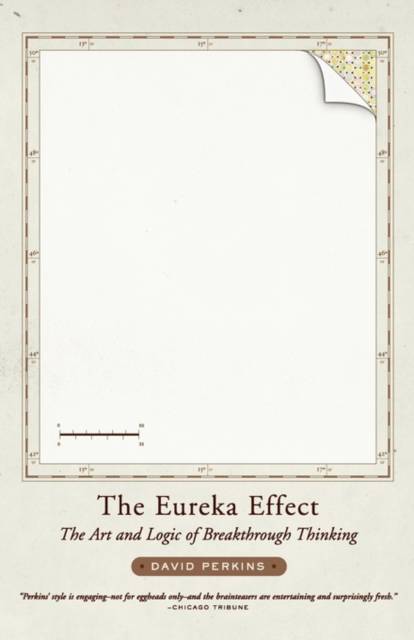
Je cadeautjes zeker op tijd in huis hebben voor de feestdagen? Kom langs in onze winkels en vind het perfecte geschenk!
- Afhalen na 1 uur in een winkel met voorraad
- Gratis thuislevering in België vanaf € 30
- Ruim aanbod met 7 miljoen producten
Je cadeautjes zeker op tijd in huis hebben voor de feestdagen? Kom langs in onze winkels en vind het perfecte geschenk!
- Afhalen na 1 uur in een winkel met voorraad
- Gratis thuislevering in België vanaf € 30
- Ruim aanbod met 7 miljoen producten
Zoeken
€ 33,95
+ 67 punten
Omschrijving
From Archimedes' discovery of the principle of water displacement while taking a bath to Einstein's Theory of Relativity, from Brunelleschi's development of perspective drawing to the Impressionist revolution, from the taming of fire to the creation of the laser, "breakthrough thinking"--that is, a sudden, seemingly unaccountable moment of inspiration--has shaped and advanced civilization. But Nature invents, too--through evolutionary watersheds like vertebrate mammals and formerly grounded creatures making the leap to flight. How, then, does breakthrough thinking really work? What, if anything, does human invention have in common with biological evolution? Drawing on a rich knowledge of artificial intelligence and cognitive psychology, David Perkins offers a uniquely integrative theory of how breakthroughs occur, along with dozens of delightful mind puzzles and illustrations that will have you quizzing whomever happens to be nearest. B/W line drawings. Published in hardcover as Archimedes' Bathtub. "This cornucopia of brain-teasers tests your mettle, sharpens your skills, and illuminates the mysteries of human problem-solving."--Howard Gardner, Harvard University, author of The Disciplined Mind
Specificaties
Betrokkenen
- Auteur(s):
- Uitgeverij:
Inhoud
- Aantal bladzijden:
- 304
- Taal:
- Engels
Eigenschappen
- Productcode (EAN):
- 9780393322552
- Verschijningsdatum:
- 1/09/2001
- Uitvoering:
- Paperback
- Formaat:
- Trade paperback (VS)
- Afmetingen:
- 140 mm x 209 mm
- Gewicht:
- 276 g

Alleen bij Standaard Boekhandel
+ 67 punten op je klantenkaart van Standaard Boekhandel
Beoordelingen
We publiceren alleen reviews die voldoen aan de voorwaarden voor reviews. Bekijk onze voorwaarden voor reviews.









